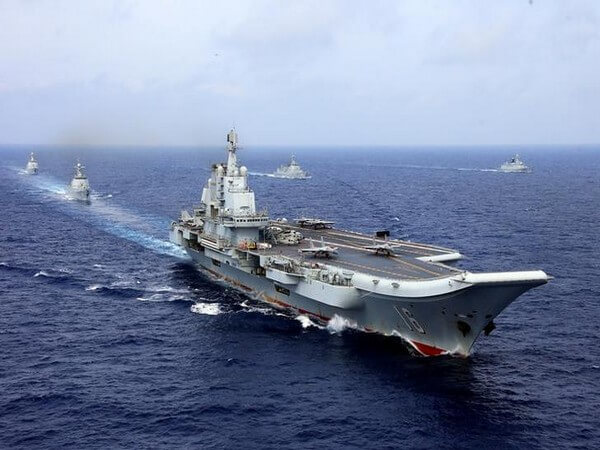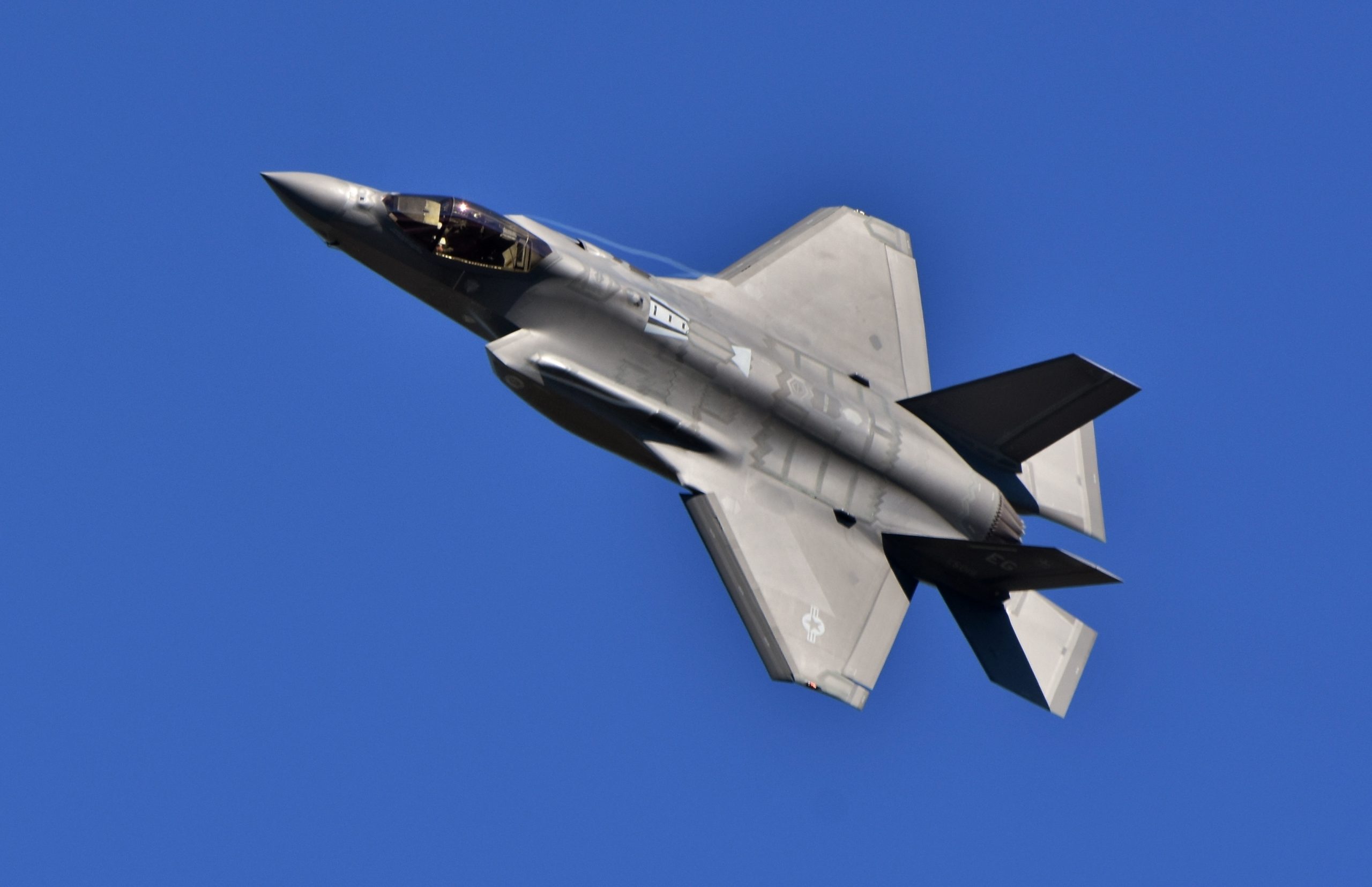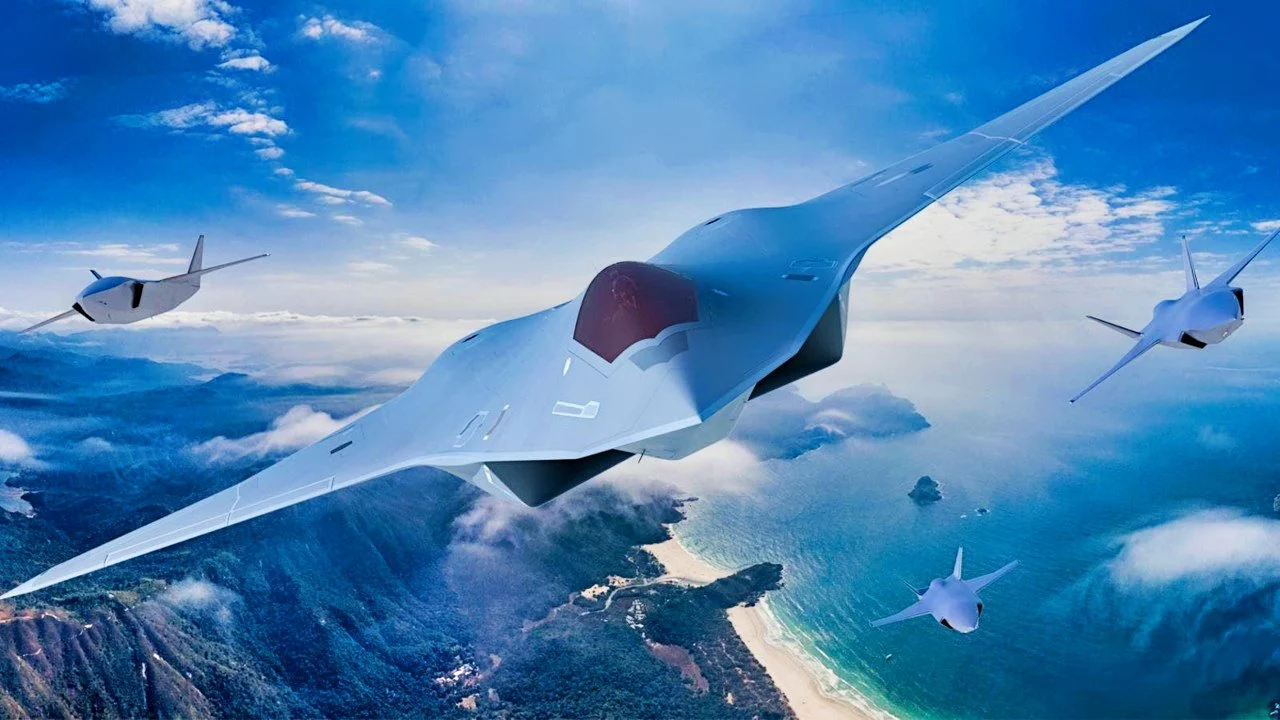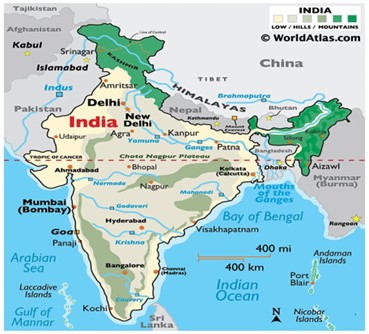
The Second Quad Summit- Whither Indo-Pacific Order

The first-ever in-person summit of the four leaders of the Quadrilateral Framework (Quad) in the Indo-Pacific on Friday in Washington marks a critical milestone for the consultative framework since it was revived in 2017 after a decade on the side-lines of the Association of Southeast Asian Nations (ASEAN) summit in Manila. Quad talks were elevated to the ministerial level in 2019 with foreign ministers from all four countries holding a meeting on the margins of the United Nations. The presence of all four head of states for this summit is significant since Japanese Prime Minister Suga’s participation had become doubtful after his intention to step down earlier this month.
Removing apprehension about the US approach towards Indo-Pacific, President Biden has not only enthusiastically endorsed the “free and open Indo-Pacific”, but has also affirmed the “centrality of the Indo-Pacific” in US national security. Earlier in March, US President Joe Biden had convened a virtual Quad summit with Prime Minister Modi and his Australian and Japanese counterparts, Scott Morrison and Yoshihide Suga. Even though Biden approach to Indo-Pacific significantly converged with the previous Trump administration, the virtual Quad summit joint statement indicated his rather distinct pragmatic approach which focussed on the Quad members “softer” capabilities in line with Indo-Pacific public-good needs rather than promote a singular counter-China orientation for the grouping.
The central idea of collaborative action aims to “strive for a region that is free, open, inclusive, healthy, anchored by democratic values, and unconstrained by coercion”. The key challenges were noted as “economic and health impacts of COVID-19,” climate change, and “shared challenges, including in cyberspace, critical technologies, counterterrorism, quality infrastructure investment, as well as humanitarian assistance and disaster relief as well as maritime domains.”
Geopolitical churning in the Indo-Pacific has considerably intensified since the last virtual summit in March. While the US strategy on the Indo-Pacific has progressively become clearer, its chaotic withdrawal from Afghanistan has raised some doubts about Washington’s approach to the region. In other significant development, AUKUS (Australia-UK-US) security alliance framework, which aimed to send a rather strong deterrent signal to China, contributed to significant anguish in Paris and concerns among the ASEAN members. This article reviews ongoing churn in the Indo-Pacific and its impact on the Quad Summit discussions.
In its Interim National Security Strategic Guidance, the Biden administration doubled down on the Trump administration’s competition with China by strengthening alliances and partnerships. Biden reiterated his commitment to engage with the world instead of following isolationist policies like the previous President and has promised to secure American interests by working with allies and partners.
In a clear signal to a toughened stance, the guidance called China an ‘assertive’ power and Russia as a ‘destabilising’ power. In addition, the Guidance promises to ‘hold countries like China to account’ through forging a unified front involving America’s alliances’ countries and partners. The Biden team views competition with China as a long-term global challenge – rather than a near-term regional imperative – this agenda has prioritized coordinated pushback on issues such as Beijing’s Belt and Road Initiative, cyber malpractices, human rights abuses, and techno-authoritarianism.
Notwithstanding, this rather unambiguous signal to push back against Chinese assertiveness in the region, rather chaotic withdrawal of the US forces from Afghanistan amid rapid Taliban take over has done significant damage to the US credibility. Many have argued that the withdrawal from Afghanistan will have dire consequences by casting doubt on America’s willingness and ability to stand up to adversaries, stand alongside allies, and stand firm when challenged.
At the same time, it has also been argued that relieved of the operational burdens that Afghanistan imposed and free of the strategic distraction that it represented, Washington can devote greater attention and additional resources to more serious threats from China and Russia. While freedom from strategic distraction in Afghanistan may be of long term strategic interest to the US, but resultant imbroglio has complicated India’s strategic calculus.
India’s western headaches are likely to increase as Pakistan and China enhance their cooperation and seek to include Afghanistan in their new trilateral. The situation in Afghanistan remains fluid and it will be too early to identify clear winners or losers. In the long term, it may turn out to be a case of mixed signals and missed opportunities. However, commentators in India will be closely watching, whether and to what extent, the Quad will be able to ameliorate India’s strategic complexity.
The sudden declaration of new security alliances in the Indo-Pacific i.e the Australia-UK-US (AUKUS) defence pact has created significant churn in the Indo-Pacific. While there existed a special relationship between US-Australia on one hand and UK-Australia on the other, all three coming together as AUKUS was indeed a surprise. More so, the US decision to supply nuclear-powered submarines to Australia is a momentous one. The strategic context of the Cold War had led the US to share nuclear propulsion submarine technology with the UK. The latent subtext of extant transfer of nuclear propulsion technology to Australia is being perceived as an emerging “Cold War” between the US and China, even though this phrase to describe the state of US-China ties is officially de-emphasised.
The AUKUS is much more than nuclear propulsion technology and includes other areas of strategic cooperation such as underwater technologies, including protecting underwater sea cables, cybersecurity, Artificial Intelligence (AI), quantum computing, sea-and air-launched missiles, and so on. In other words, it aims to significantly surge Australia’s military power and also tie her even more intimately to the US in the decade ahead.
Australia for a considerable period had attempted a delicate balance between economic and strategic imperatives by deftly managing strategic partnerships with the US and close economic relations with China. With worries about the economic costs of confrontation with China, Australia has been reluctant to endorse America’s China-related policies. However, growing Chinese assertiveness seems to have compelled Australia to a closer embrace with the US. Apart from its aggressive policies in the South and East China Seas and towards Taiwan, China has been crassly bullying Australia and has sanctioned it economically. The AUKUS sets a course for Australia to be a more robust partner in curbing China’s expansionism and hegemonic policies in the Indo-Pacific.
While AUKUS is a security pact intended to moderate Chinese blatant coercive approach and aggressive military muscle-flexing in the Indo-Pacific, it has caused considerable collateral damage to France. The AUKUS deal has caused palpable consternation in Paris since it has led to the cancellation of the Naval Group contract worth approximately $ 60 billion signed in 2016 for twelve Shortfin Barracuda conventional submarines for the Royal Australian Navy. France is understandably upset not only due to losing a lucrative defence deal, but the subterfuge of keeping her in dark by three AUKUS members.
France, in a strongly worded statement, said the new deal was “contrary to the letter and the spirit of the cooperation that prevailed between France and Australia”. Former French ambassador to the US, Gerard Araud tweeted that the US and the UK have stabbed France in the back in Australia. France has also recalled its ambassadors from Washington and Canberra. France, which is a big votary of Europe’s strategic autonomy, has been advocating expansion of European Union’s defence-related capacities to reduce dependence on the US.
Shoddy treatment given to France by AUKUS would have potential implications for transatlantic relations between the US and Europe on one hand and EU’s strategic engagement in the Indo-Pacific. While the EU has just announced its Indo-Pacific strategy, the impact of France-US tensions will not be in favour of working for more cooperative US and EU strategies in the Indo-Pacific region, given France’s key position in the EU and its position as the only EU country which has the interests and capacities to pursue a robust Indo-Pacific strategy. Given Europe has mostly engaged with this region in the trading realm, security of the Sea Lanes of Communication (SLOCs) and the safe passage of commercial vessels is an important concern for the EU. Given China’s expansionist tendencies in the Western Pacific and its growing footprints in the Indian Ocean, it is only logical for the EU to think of working alongside other like-minded countries in the Indo-Pacific region like India, Japan, Australia, and the US in the maritime domain.
While France has reasons to be annoyed with the US and Australia, the other two Quad members i.e India and Japan need to go the extra mile to engage with France. Prime Minister Modi’s phone call to President Macron and warm reciprocation from Paris to this outreach indicates efforts to strengthen bilateral engagement but also to keep France intimately engaged in the Indo-Pacific. The backchannel diplomacy also seems to be active between Washington and Paris.
The American withdrawal from Afghanistan and the sale of nuclear submarines to Australia, occurring within a few weeks of each other, interpose the transition to more clear-cut great power competition. President Biden’s speech to ongoing United Nations General Assembly provides some pointers towards Washington’s foreign policy approach. He used his first speech to the United Nations General Assembly to describe a world where American civic leadership, rather than military power, acts as the driving force to resolve persistent problems like coronavirus, climate change and cyber war. And while he didn’t single out China as the dominant global threat, he insisted the US would seek to counter rising autocracies while avoiding “a new Cold War.”
The speech was a return to many of the themes Biden has spoken about since entering the White House in January, framing the future of global relations as democracy versus autocracy and emphasizing the US’ plans to strengthen relationships with its allies. That commitment is something many European nations are questioning in the wake of a diplomatic kerfuffle with France. Commentators in US have argued that sooner or later the French anger will subside and a closer strategic engagement will resume.
While there exists some apprehension about the Quad being side-lined in favour of AUKUS, it needs to be noted that the two constructs are different. In a wider perspective it can be seen as complementary to the Quad in some ways. When asked if PM Modi’s meetings and the Quad summit would be impacted or overshadowed by the big US-Australian defence partnership, Foreign Secretary, Mr Shringla said the two events were not linked and also denied that the new partnership would mean that the Quad would only deal with “softer issues”. He further emphasised that “there is no link between AUKUS and Quad. AUKUS is a security alliance, Quad is a different group of countries working on a different vision…of the Indo Pacific as a free, open, transparent, inclusive region. And in the same sentiment, Malabar exercises (maritime exercises involving Australia, India, Japan, US) are those that are done between different nations but has nothing to do with Quad.”
Quad summit is expected to show all the four countries as part of a strengthened coalition of “democratic polities, market economies and pluralistic societies”. In addition, policy frameworks for practical cooperation on climate change, COVID-19 vaccines, and supply chain resilience frameworks as announced during the virtual summit in March is expected. Further expansion of the Quad to include like-minded regional or even extra-regional partners could also be a possible agenda for discussions.
In any case, outcome and policy choices emerging out of this momentous meeting of the Quad leaders will be carefully watched, given the increasingly arduous burden of expectations from the second Quad summit in shaping geopolitical contours of the Indo-Pacific.
************
Disclaimer
The opinions expressed in this article are the author’s own and do not reflect the views of Chanakya Forum. All information provided in this article including timeliness, completeness, accuracy, suitability or validity of information referenced therein, is the sole responsibility of the author. www.chanakyaforum.com does not assume any responsibility for the same.
Chanakya Forum is now on . Click here to join our channel (@ChanakyaForum) and stay updated with the latest headlines and articles.
Important
We work round the clock to bring you the finest articles and updates from around the world. There is a team that works tirelessly to ensure that you have a seamless reading experience. But all this costs money. Please support us so that we keep doing what we do best. Happy Reading
Support Us





















POST COMMENTS (2)
Alok Mathur
Lepke Buchalter